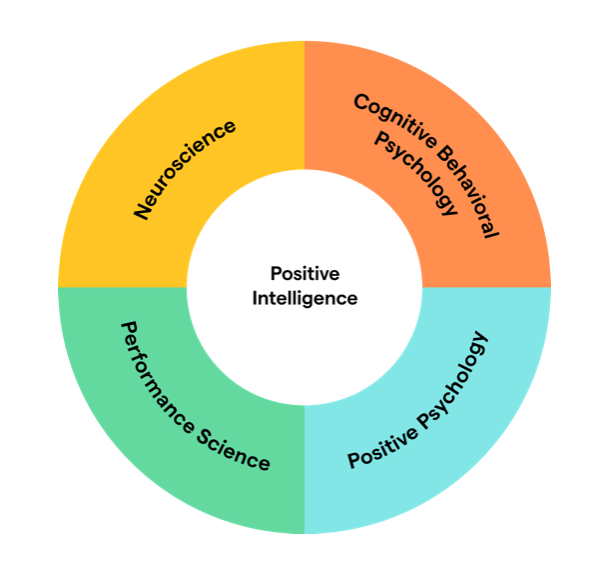 The featured story July 18, 2022, from Inc. had this headline: “Adam Grant Talks Mental Health with Prince Harry: ‘Your Body Cannot Function Without Your Mind.’” We know this is true, and we expect that if we do not take care of our body, it will not function at peak performance. So, then the question becomes, how do you take care of your mind? Specifically, the article mentions mental fitness. Grant says, “If we do not invest in mental fitness, performance cannot be sustained.”
The featured story July 18, 2022, from Inc. had this headline: “Adam Grant Talks Mental Health with Prince Harry: ‘Your Body Cannot Function Without Your Mind.’” We know this is true, and we expect that if we do not take care of our body, it will not function at peak performance. So, then the question becomes, how do you take care of your mind? Specifically, the article mentions mental fitness. Grant says, “If we do not invest in mental fitness, performance cannot be sustained.”
The article suggests 3 ways employers and organizations can help people work through what it will take to consistently maintain peak mental performance on their own:
Normalize the behavior of well-being and mental fitness by talking about it!
I agree with Adam Grant, when leaders talk about and embrace any concept that appears “squishy,” the stigma begins to fade away. Leaders must pave the way forward for acceptance.
Based on my experience, well-being and mental fitness are not new, but concepts that have evolved over time. For example, consider the groundbreaking work of Brandon Goleman in the 1990’s on emotional intelligence. His 1995 book, “Emotional Intelligence,” was on the New York Times bestseller list for 1½ years, and it took decades before the concepts were embraced. I first heard about emotional intelligence in 2010 at a conference where it was described as a ‘must have’ skill as we neared the 2020s. Words like self-awareness and self-management began to surface as did the latest thoughts on how to achieve it.
Brandon Goleman said, “By teaching people to tune in to their emotions with intelligence and to expand their circles of caring, we can transform organizations from the inside out and make a positive difference in our world.” That was in 1995 and now it is 2022.
Erect a strategy to practice mental fitness on an individual basis.
By doing this, the team supports the needs of others. In the article, Jacinta Jimenez suggests ideas such as journaling, practicing mindfulness for five minutes before the start of a meeting or spending time in nature with a colleague. Her point is to find what works for you and have the team embrace individual uniqueness to gain buy-in.
The above ideas are the beginning in terms of developing mental fitness. It is like lifting dumbbells for your body, only the weights are different because you are developing your brain. I first became aware of mental fitness late last year through the company Positive Intelligence which is also the title of a New York Times bestselling book authored by Shirzad Chamine. The book was published in 2006, and like Emotional Intelligence, it is now gaining momentum in the business community.
Shirzad Chamine said, “We’re helping every human build mental fitness so they can fulfill their true potential for both happiness and contribution.”
Don’t just talk the talk.
Jacinta Jimenez is clear about the role of the leader in motivating the team to embrace mental fitness. She says, “If teams can infuse a culture that’s open to speaking about wellness within their organizations, it can make a difference in what separates a good company from a great one.” Adam Grant adds, “I cannot overstate the importance of a leader or manager saying, ‘I care more about your well-being, than I do about your results’.”
The reference to what separates a good company from a great one is a throwback to “Good to Great” published in 2001, and its predecessor “Built to Last” published in 1994. These are two of my favorite leadership and management books written by Jim Collins that I still reference today.
While Gary Hamel once said there has been nothing new in the last 100 years in the field of management in his book, “The Future of Management,” what is evolving is a definite shift from productivity to humanness. This is my opinion based on a career spent leading companies and managing businesses. At the center of greatness are people; we have evolved now to a point where we can no longer ignore that people are human. People want to be both successful and happy.
If retention is an issue for you, consider helping your people get mentally fit. I have observed one major obstacle most people, including me, deal with: managing self-sabotaging behaviors. After learning more about Positive Intelligence, doing the due diligence, taking their six-week training program and 26-week advanced training, we are now facilitating and encouraging our clients to sign up with us for the Positive Intelligence six-week program (delivered through an app). We believe by offering this program to our clients, they accelerate their capability and capacity to respond to life’s challenges with a positive rather than a negative mindset. What follows is peak performance, peace of mind, wellness, and healthier relationships.
To learn more about Positive Intelligence, read about this breakthrough research and then take the free assessments (PQ Score Assessment and Discover My Saboteurs Assessment) on their site https://www.positiveintelligence.com/science/.
The future is evolving rapidly, be a part of it now.
